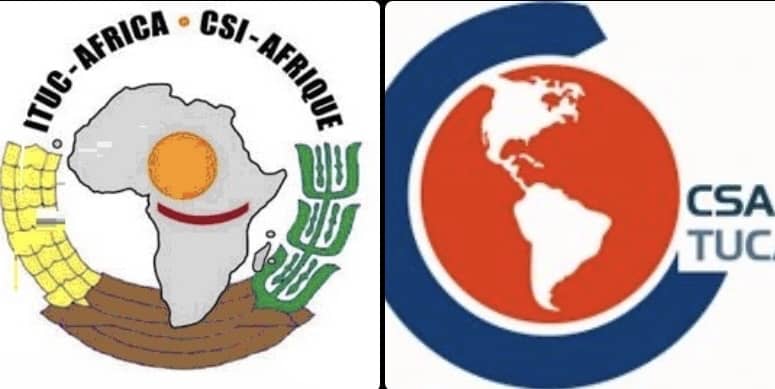Insisting on Equitable Climate Financing and Technology Transfer
By Michael Oche
At the ongoing COP30 conference in Belém, Brazil, representatives from trade unions across Africa and Latin America are making a powerful statement about climate justice. Their message is clear: a just and equitable climate transition is non-negotiable. Framing their demands against the backdrop of what they term “green colonialism,” they emphasize the need for climate actions that align with the rights and developmental aspirations of the Global South.
A joint statement from Akhator Joel Odigie, General Secretary of ITUC-Africa, and Rafael Freire, General Secretary of the Trade Union Confederation of the Americas (TUCA), encapsulates this demand. The unions assert that the Global South should not bear a disproportionate burden in addressing a climate crisis it did not instigate. They are calling for a reassessment of existing practices that often perpetuate inequality in the face of climate challenges.
While acknowledging their commitment to the global climate agenda, the unions stress that the required transition to a low-carbon, sustainable future must not replicate historical injustices. “A ‘just transition’ must be just that: fair, equitable, and inclusive for all,” they state. The emphasis on equitable transition highlights that these regions are not mere victims of climate change; instead, they are custodians of significant biodiversity and natural resources critical for sustainable technologies.
This call for justice in climate action extends to the right of the Global South to sustainable development and energy sovereignty. The unions highlight the urgent need for policy frameworks that address energy poverty and facilitate expanded access to energy for their growing populations. They contend that these frameworks are vital for economic growth, enabling nations to escape the cycle of dependency that often accompanies international climate agreements.
In their statement, TUCA and ITUC-Africa express frustration over unmet climate finance commitments. They insist that the principles of common but differentiated responsibilities require that those most affected by the climate crisis receive appropriate compensation. “Financing for adaptation and transition cannot become a new cycle of debt,” they argue, calling for a fundamental reform of the global financial system to support sustainable development rather than impose market solutions that primarily benefit transnational corporations.
The unions have articulated specific demands to guide this just transition. These include dramatically increased climate financing based on grants and highly concessional loans that reflect the severity of climate challenges. They advocate for simplified and democratized access to funds, noting the bureaucratic hurdles that often exclude the most vulnerable nations. Addressing the current debt crisis is also critical, as it constrains the ability of these nations to invest in climate action.
Among their proposed solutions are debt-for-climate swaps and the introduction of debt suspension clauses triggered by climate disasters. They also call for new long-term, low-interest financing instruments, emphasizing that these approaches should not deepen dependency or undermine the sovereign capabilities of their nations.
On the topic of technology transfer, TUCA and ITUC-AFRICA assert that relying solely on imported technologies is neither sustainable nor fair. This dependence often exacerbates economic challenges and limits local capacity-building efforts. They advocate for frameworks that allow for the voluntary transfer of green technologies, ensuring that critical technologies during global emergencies are accessible without excessive constraints.
The unions underline the importance of transitioning from merely being exporters of raw materials to becoming creators of value and decent work within their regions. This shift is not just an economic imperative; it is essential for fostering resilience against the adverse effects of climate change while promoting sustainable development.



